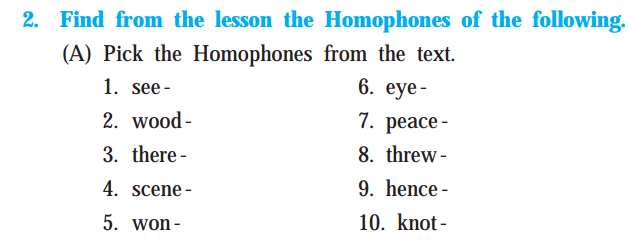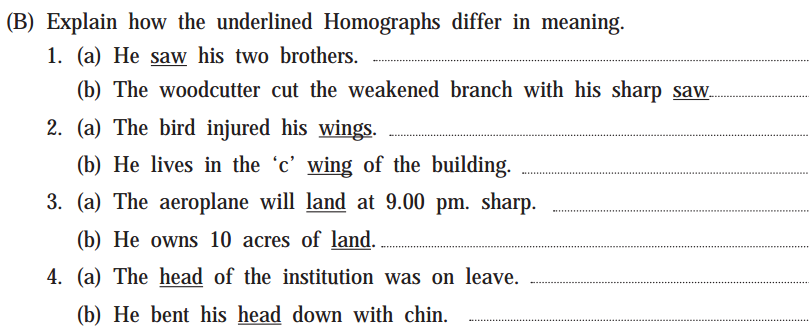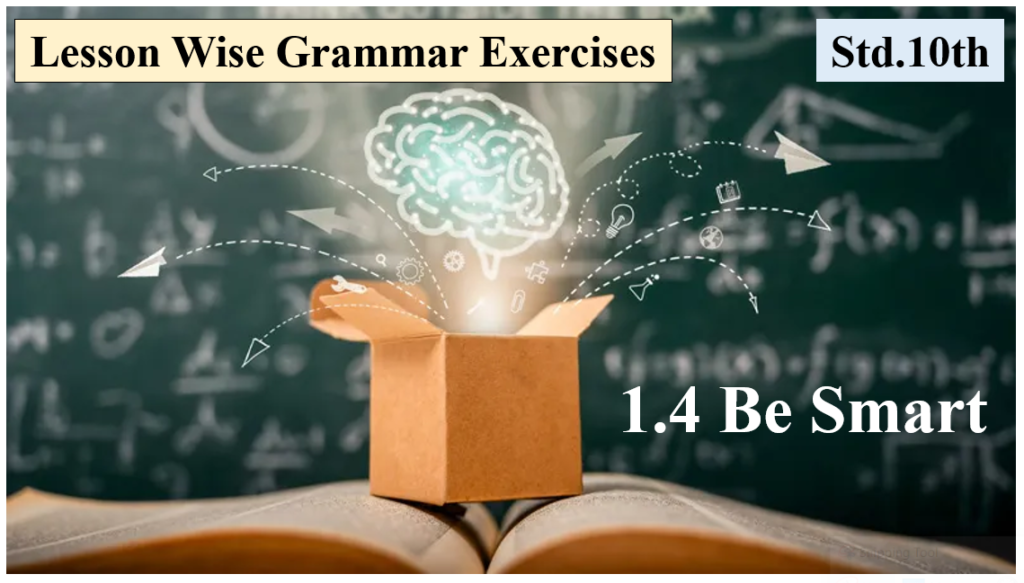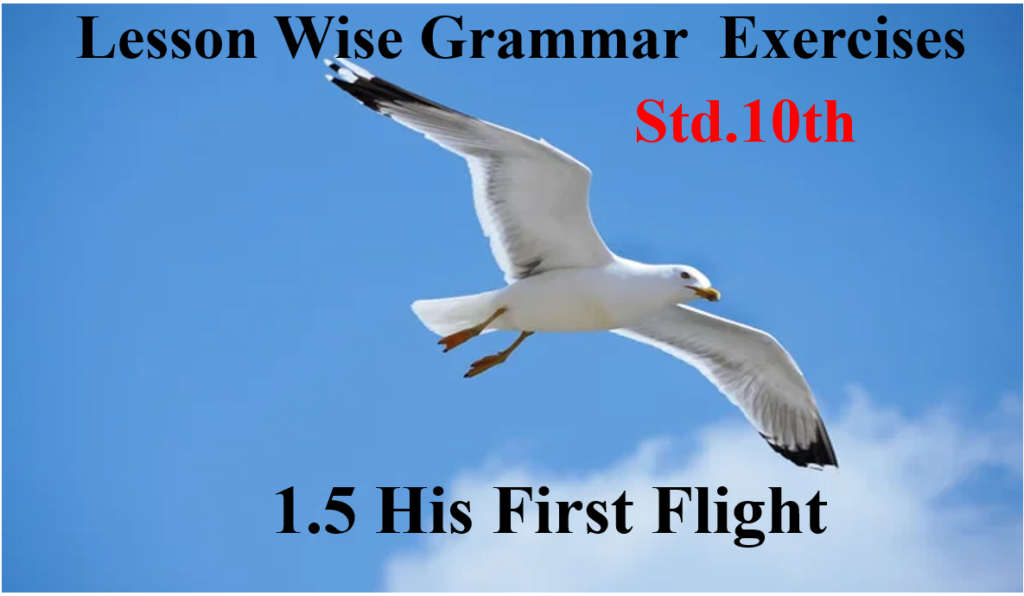
Std.10th Lesson Wise Grammar Exercises 1.5 His First Flight
Sub: English Std. X
—————————————————————–
- Homophones:
There are words that have the same pronunciation but differ in spellings. They
are called Homophones.
For example,
(a) fair-fare (b) know- no
- Homographs.
Sometimes the words have the same spellings and pronunciation but can have
different meanings in different situations. They are called Homographs.
For example,
watch- observe,
watch- portable timepiece
(b)
fair – not very good, not very bad
fair – an exhibition and sale of items
fair – of complexion, skin tone
Note : Homophones and Homographs are together known as Homonyms.
Q.I) Give the Homophones of the following.
(a) blue
(b) bear
(c) beet
(d) to
(e) son
Answer:
- blue – blew
(b) bear – bare
(c) beet – beat
(d) to – two
(e) son – sun

Answer:
- see – sea
- wood – would
- there – their
- scene – seen
- won – one
- eye – I
- peace – piece
- threw – through
- hence – hens
- knot – not

Answer:
- saw
- (a) saw – past tense of the verb “see,” meaning to have looked at something.
- (b) saw – a noun referring to a tool used for cutting wood or other materials.
- wing
- (a) wings – parts of a bird’s body that enable it to fly.
- (b) wing – a section or extension of a building.
- land
- (a) land – verb meaning to come down and settle on a surface, as an airplane does when it arrives.
- (b) land – noun referring to an area of ground or property.
- head
- (a) head – noun meaning the person in charge of an institution or organization.
- (b) head – noun referring to the top part of the body where the brain, eyes, ears, nose, and mouth are located.

Answer:
(a) The sun was ascending the sky.
- Verb: was ascending
- Tense: Past Continuous
(b) Still they took no notice of him.
- Verb: took
- Tense: Simple Past
(c) She is standing on a little high hump on the plateau.
- Verb: is standing
- Tense: Present Continuous
(d) He leaned out eagerly.
- Verb: leaned
- Tense: Simple Past
(e) He felt dizzy.
- Verb: felt
- Tense: Simple Past
Adverb
An adverb is a word that tells us something more about a Verb, an Adjective, or another Adverb.
- About a Verb:
- He runs fast.
- The girls sang sweetly.
- Suddenly the baby started crying.
- About an Adjective:
- This chain is very sturdy.
- The tea is too hot.
- About another Adverb:
- You should run very fast.
- About a Phrase or Sentence:
- Unfortunately, your answer is incorrect.
Adverbs give us information about:
- Place, for example, Go there, come in.
- Time, for example, I will do my homework tomorrow.
I need a pencil now.
Manner or the way something is done, for example,
Read slowly, write well
Degree, for example, the water is too cold.
Many adverbs end with –ly, such as ‘slowly’, actually, surprisingly, etc. Like adjectives, adverbs can also be used in comparative and superlative degree forms.
Examples:
- He spoke most impressively.
- They danced more gracefully.



